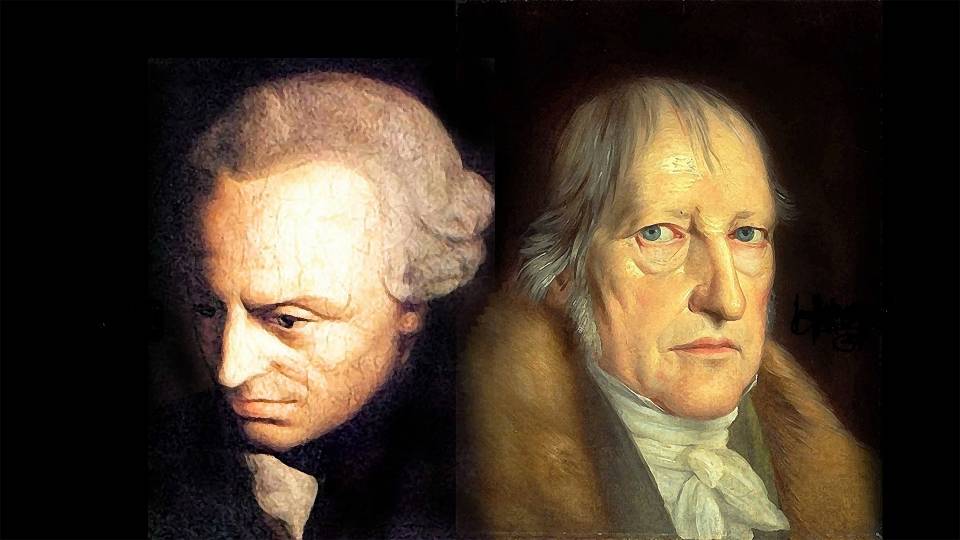Greatest Philosophers Are All White European Men
Ricardo Duchesne, Council of European Canadians, 12 January 2018
It could be that the most important historical question, the question that points to a monumental contrast between the West and the Rest, is the following: why did Europe produce all the greatest philosophers in history? If we agree that philosophers have been the greatest thinkers, because they have provided the best answers to the most crucial questions about being and becoming, the finite and the infinite, why there is anything rather than nothing, what is good and evil, what is the relation between freedom and necessity, then identifying the ethnicity of the greatest philosophers may be a most revealing factum. One does not have to agree with Aristotle that the "highest good" is the pursuit of Wisdom to take seriously his claim that, if "all men by nature desire to have knowledge," and if the highest form of knowledge is giving reasons for what is, then it cannot be denied that the civilization that produced the greatest philosophers is the civilization that provided the deepest knowledge about the ultimate questions and thus the civilization that achieved the highest level of cultural expression.
Why A List Of 75?
I say "all the greatest" even though the list of 75 names I have compiled in this article (see below) includes some non-Europeans. They would have been all European if I had compiled a list of 25, which was my initial intention. I thought one or two non-Europeans might make it to this list, but after many hours of reading and thinking about multiple names, I decided that, besides two or three Jewish philosophers born inside Europe, not a single philosopher outside Europe could be reasonably added to a list of 25.
I considered a list of 50 to see if some Chinese and Islamic philosophers would make it, but then I realized that if non-European names were added I needed to add many other Europeans who were (at least) just as great. This is why I opted for a list of 75. I wanted a list with a bit of competition, rather than a list with a silencing score of 25 to 0.
Having said this, I also provide here compelling reasons for a list of 100 consisting solely of philosophers born in Europe. The 75 list is meant to be conciliatory. The 100 list, which is implicit in this article, expresses a stronger, less propitiatory impulse for truthfulness.
I was going to consult encyclopedias and dictionaries of philosophers, but these are too comprehensive in their inclusion of numerous secondary figures, so I decided to rely on my own judgement and my own library of books, referenced at the end. These books are mostly histories of philosophers, which strike me as the best way to decide which philosophers are the best, and how long the list should be.
I need hardly say that some names in this long list can be challenged. One of the disadvantages of a long list is that, as the standards are slightly lowered, the number of choices increases. Many may ask: why Carnap but not Fichte? Or why Aurelius but not Epictetus? Why Rorty but not Holbach? Why Bonaventura but not Pascal? Why Lucretius but not Montaigne? My answer is that it could have gone either way. I tried to be as fair as possible, without lowering standards, in choosing from a wide variety of philosophical schools, not giving preference to particular schools, be it analytical, pragmatic, idealist, Christian, or existentialist.
In truth, there are so many great Europeans that a list of 100 could have been easily created without lowering standards, with names just as great. Contrary to what multiculturalists may think, if this had been a list of 100, the proportion of Europeans added would have been far greater than the proportion of non-Europeans. This would still hold in a list of 200. This is all the more true if we consider that many truly great thinkers, "past masters," not seen as philosophers, contributed groundbreaking ideas in such fields as linguistics, psychology, sociology, anthropology, historical writing, and more, which had a major impact on philosophy. I am thinking of individuals such as Ferdinand de Saussure, Jacques Lacan, Tocqueville, and Montesquieu. On the other hand, I included Max Weber, Oswald Spengler, and Adam Smith, possibly because I know more about them, as broad thinkers who contributed huge ideas about history, ethics, and sociology, with direct philosophical implications.
I excluded Karl Marx because he openly said that philosophy was a "scholastic" affair, that only political economy could reveal the "anatomy" of society and the logic of history. He specifically attacked the entire Western philosophical tradition as an "ideological" obfuscation of reality and as mere beliefs serving the interests of the ruling class. (It is true that Carnap was a member of the Vienna School, which aimed at the "elimination" of metaphysical questions from philosophy; still, his contribution to the logical analysis of language can't be dismissed in our efforts to engage in metaphysics even if we conclude that these questions cannot be avoided in any investigation of the nature of reality and language use).
I decided to leave out scientists, as Charles Murray already calculated that 97% of the greatest scientists were European.
One of the advantages of a long list of 75 is that many will agree about 25 of the names included; no one would dispute that Locke, Aquinas, Hume, Kant, Plato, and Augustine made it to a 75 list.
My estimation of the top 15 philosophers are in bold. I am not certain about some of these names. Why is Schelling in this list but not Locke or Augustine? I will try to answer this question in a future article about the uniquely European predilection for asking and offering the best answers to primordial questions about what is there, what is freedom, and why is there anything instead of nothing, by way of Schelling's essay, Philosophical Investigations into the Essence of Human Freedom, claimed by Heidegger as "one of the deepest works of German and thus of Western philosophy."
Read the rest at The Council of European Canadians.






















